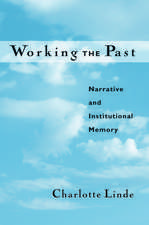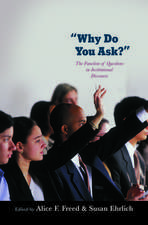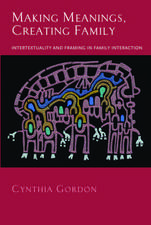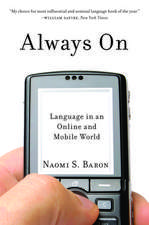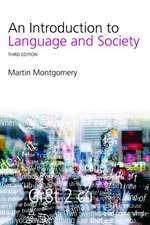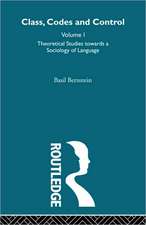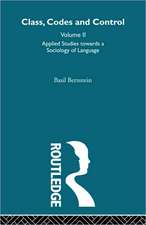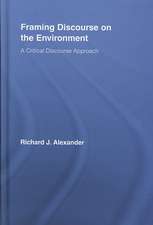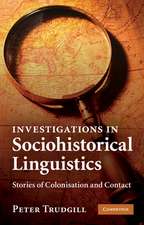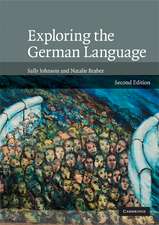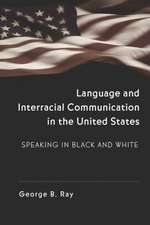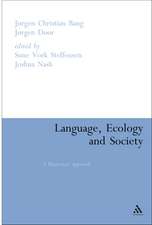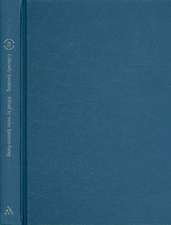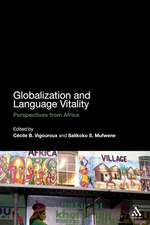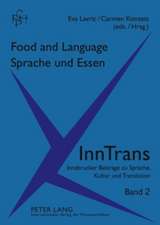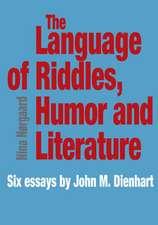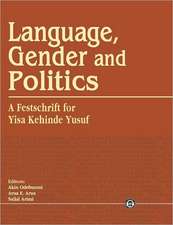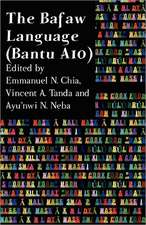Speak English or What?: Codeswitching and Interpreter Use in New York City Courts: Oxford Studies in Language and Law
Autor Philipp Sebastian Angermeyeren Limba Engleză Hardback – 16 apr 2015
Din seria Oxford Studies in Language and Law
- 22%
 Preț: 546.64 lei
Preț: 546.64 lei - 18%
 Preț: 182.22 lei
Preț: 182.22 lei - 12%
 Preț: 561.35 lei
Preț: 561.35 lei - 30%
 Preț: 555.25 lei
Preț: 555.25 lei - 30%
 Preț: 527.14 lei
Preț: 527.14 lei - 30%
 Preț: 526.83 lei
Preț: 526.83 lei - 11%
 Preț: 291.27 lei
Preț: 291.27 lei - 30%
 Preț: 550.45 lei
Preț: 550.45 lei - 30%
 Preț: 596.40 lei
Preț: 596.40 lei - 31%
 Preț: 653.94 lei
Preț: 653.94 lei - 30%
 Preț: 658.11 lei
Preț: 658.11 lei - 14%
 Preț: 248.33 lei
Preț: 248.33 lei - 30%
 Preț: 553.30 lei
Preț: 553.30 lei - 25%
 Preț: 589.19 lei
Preț: 589.19 lei - 30%
 Preț: 552.89 lei
Preț: 552.89 lei - 30%
 Preț: 552.33 lei
Preț: 552.33 lei - 12%
 Preț: 136.43 lei
Preț: 136.43 lei - 30%
 Preț: 550.61 lei
Preț: 550.61 lei - 30%
 Preț: 550.04 lei
Preț: 550.04 lei
Preț: 554.12 lei
Preț vechi: 792.17 lei
-30% Nou
Puncte Express: 831
Preț estimativ în valută:
106.03€ • 111.02$ • 87.95£
106.03€ • 111.02$ • 87.95£
Carte tipărită la comandă
Livrare economică 31 martie-05 aprilie
Preluare comenzi: 021 569.72.76
Specificații
ISBN-13: 9780199337569
ISBN-10: 019933756X
Pagini: 260
Dimensiuni: 236 x 160 x 25 mm
Greutate: 0.66 kg
Editura: Oxford University Press
Colecția OUP USA
Seria Oxford Studies in Language and Law
Locul publicării:New York, United States
ISBN-10: 019933756X
Pagini: 260
Dimensiuni: 236 x 160 x 25 mm
Greutate: 0.66 kg
Editura: Oxford University Press
Colecția OUP USA
Seria Oxford Studies in Language and Law
Locul publicării:New York, United States
Recenzii
This richly stimulating work is the product of ethnographic observations, interviews and extensive analysis of recorded interactions in several small claims courts in New York City. Although a good proportion is devoted to the analysis of code-switching and code-mixing in interpreter-mediated court interactions, the significance of the work extends beyond the micro level as it provides a comprehensive picture into organising and delivering interpreting services in a superdiverse social setting.
This book is logically structured and easy to read. In addition to a comprehensive analysis of research literature in the field, Angermeyer provides excellent examples which are then thoroughly analyzed and put into the wider framework of previous research results. Angermeyer strikes a good balance between theory and examples, offering new insights for researchers, interpreter trainers, court interpreters and students of interpreting. In addition, important consequences are drawn that are of interest to the legal profession and decision-makers not only in the United States but also elsewhere.
On the whole, the volume offers clear evidence of the multiple ways in which litigants speaking languages other than English in New York courtrooms (and presumably elsewhere) are disempowered due to monolingual ideologies, institutional and economic power relationships, and failures in the structuring and process of interpreting. Litigants who do not speak English, who appear in court without representation, who do not have interpreting available at all stages of the legal process, and who are unfamiliar with the appropriate registers and ways of presenting evidence do not get to tell their story in their own voice.
... this book goes beyond court interpreting per se, spotlighting other topics that have been under-researched to date, such as codeswitching in interpreted interactions ... brings new and original ideas and perspectives to the study of court interpreting. A breath of fresh air.
The book raises important questions about the fairness of trial for speakers of languages other than English (LOTE) as it explores how language ideologies and institutional practices act litigants opportunity to tell their story ... It will certainly be most useful in research and teaching of multilingual practices in a legal context.
Angermeyer convincingly shows throughout this book how speaking a language other than English in court is a disadvantage for litigants, not only with regard to the possibility of making one's voice heard, but also for the actual legal outcome
I must once again applaud this thought-provoking book that brings new and original ideas and perspectives to the study of court interpreting. A breath of fresh air.
This book is logically structured and easy to read. In addition to a comprehensive analysis of research literature in the field, Angermeyer provides excellent examples which are then thoroughly analyzed and put into the wider framework of previous research results. Angermeyer strikes a good balance between theory and examples, offering new insights for researchers, interpreter trainers, court interpreters and students of interpreting. In addition, important consequences are drawn that are of interest to the legal profession and decision-makers not only in the United States but also elsewhere.
On the whole, the volume offers clear evidence of the multiple ways in which litigants speaking languages other than English in New York courtrooms (and presumably elsewhere) are disempowered due to monolingual ideologies, institutional and economic power relationships, and failures in the structuring and process of interpreting. Litigants who do not speak English, who appear in court without representation, who do not have interpreting available at all stages of the legal process, and who are unfamiliar with the appropriate registers and ways of presenting evidence do not get to tell their story in their own voice.
... this book goes beyond court interpreting per se, spotlighting other topics that have been under-researched to date, such as codeswitching in interpreted interactions ... brings new and original ideas and perspectives to the study of court interpreting. A breath of fresh air.
The book raises important questions about the fairness of trial for speakers of languages other than English (LOTE) as it explores how language ideologies and institutional practices act litigants opportunity to tell their story ... It will certainly be most useful in research and teaching of multilingual practices in a legal context.
Angermeyer convincingly shows throughout this book how speaking a language other than English in court is a disadvantage for litigants, not only with regard to the possibility of making one's voice heard, but also for the actual legal outcome
I must once again applaud this thought-provoking book that brings new and original ideas and perspectives to the study of court interpreting. A breath of fresh air.
Notă biografică
Philipp Sebastian Angermeyer is Assistant Professor in the Department of Languages, Literatures, and Linguistics at York University.

